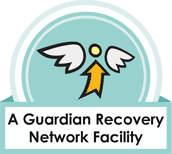Quitting alcohol once and for all can be a formidable challenge. Many who seek to quit drinking once and for all will seek the professional help and support of a reputable alcohol treatment center. While in treatment, they will undergo an intensive and structured treatment plan that will include individual and group therapy, life and coping skills training and aftercare programs such as intensive outpatient therapy and sober living. Another important component of an individual’s alcohol treatment plan is becoming familiar with and actively participating in 12-Step groups such as Alcoholics Anonymous.
Alcoholics Anonymous provides those who struggle with early recovery a structured environment in which they receive the feedback, support, and encouragement from other people who are in recovery and sharing similar struggles. The empowerment that comes from AA is a major key to a meaningful long-term recovery for many alcoholics. Many rehab facilities have made 12-Step meetings such as Alcoholics Anonymous an essential foundation of their treatment programming. If you seek an alcohol rehab program that has a strong 12-step based foundation, call Guardian Recovery Network today and speak to one of our experienced member representatives.
A Brief History of Alcoholics Anonymous
The beginnings of Alcoholics Anonymous trace back to 1934 and a former Wall Street banker by the name of Bill Wilson. At that point in his life, Wilson was suffering from chronic alcoholism and was seeking help in order to overcome his addiction to alcohol. A friend had suggested that he join the Oxford Group. The group itself was not formed with the intention of being a resource for alcoholics, bu the group’s strong Christian beliefs, teachings, and supportive community atmosphere helped its followers to experience spiritual conversions.
Their observance of the teachings of Jesus Christ had helped some of their members who were struggling with alcoholism to quit drinking. Because of this, the message began to spread that the Oxford Group could help people recover from alcoholism. While Wilson did attend Oxford Group meetings, he claimed to have a profound spiritual experience during his hospital stay and credited that specific experience to his recovery.
After his recovery, Wilson concluded that the key to getting and staying clean and sober was helping others by utilizing the Christian principles put forth by the Oxford Group. With the help of Dr. Bob Smith, Wilson formed Alcohol Anonymous in 1935. The formation of AA took place during a time in American history when alcoholism met with severe stigma from the American public and was seen as a sin and general moral failing. Due to the prevailing cultural climate of that time, the main feature of AA was that group member’s anonymity was strictly upheld outside of meetings and other related functions.
The Structure of AA Meetings

For anybody who attends an Alcoholics Anonymous meeting, they realize that the meeting itself is highly structured and follows firm guidelines. First and foremost, AA meetings can be held anywhere such as a church basement, school classrooms and even in people’s living rooms. No matter the location, the meeting itself needs to be held in an environment which is quiet and will not experience any interruptions.
AA meetings will start with a greeting and introduction from the chairperson of that specific homegroup. The welcome can be something like the following:
Hi, my name is (insert name) and I am an alcoholic. I would like to welcome you to (name of meeting) and would like to welcome any new attendees and have you introduce yourselves.
After the introduction and the reading of the preamble to AA and how AA works, the chairperson may suggest a topic or one of the Steps as the basis for that particular meeting. Each person in that meeting will have time to share their personal experiences on that topic. When each member has the chance to speak and will introduce themselves along the lines of “Hi, my name is _____, and I am an alcoholic” and the group acknowledges that person. Once a person is done speaking, the group will thank that person for sharing.
Once everyone in the group has had a chance to share, the group will come together, hold hands and say the Serenity Prayer. Once the prayer has been said, the meeting is officially over.
Things to Keep in Mind at AA Meetings Delray Beach
For those who are attending an Alcoholics Anonymous meeting for the first time, it can be a little overwhelming at first. However, you will soon find a welcoming environment in which many people will gladly help you in any way they can. While it is a positive environment, there are some guidelines that you will be made aware of by other group members.
First and foremost, what is said and done at meetings is completely confidential–for this is the main tenet of AA meetings in Delray Beach. When other people are speaking at a meeting, you must show respect and allow the person to speak freely and openly without interruption. Crosstalk or advice giving during the meeting itself is highly discouraged. When it is your turn to speak, avoid using “we” or “you”; always focuses on yourself and your experiences, strength and hope. If you don’t feel comfortable in sharing at a meeting, all you need to say is that you will pass.
It may seem like a lot of things to remember when you first attend AA meetings, but once you start attending meetings on a regular basis, it will become second nature to you. In almost every city and town in the United States and around the world, there are often several AA meetings that you can choose from. If a certain meeting doesn’t appeal to you, simply find one in your area that does.
Are You Looking for Drug Treatment That is 12-Step Based?
12-Step meetings such as Alcoholics Anonymous is not only a major part of your overall recovery plan when you are in drug treatment, it is also essential in your goal of maintaining long-term recovery when treatment is done. If you are looking for drug treatment with a strong emphasis on 12-Step principles, Guardian Recovery Network is your first choice. Call us toll-free today at (888) 693-1894!

Reviewed for accuracy by:
Anna Marie Barrett LCSW, CYT
Anna earned her Masters of Social Work at Barry University in Miami, FL in 2017 and completed her internship in co-occurring disorders. Anna has a Bachelors of Art in Religious Studies from Naropa University and is a certified yoga and meditation instructor. Anna has received specialized training in somatic counseling with an emphasis on body-centered psychotherapy.




















